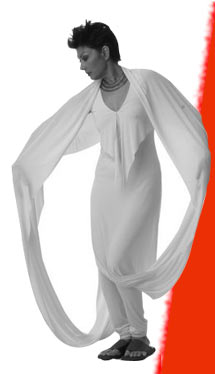Nisha was three when her grandfather first felt her up. She didn’t know this then. He came to bathe her. Her mother had several other children to look after her and was happily surprised at his offer to help bathe and dress her. Nisha came to think it odd and feel strange only when she was ten or eleven. She overheard another friend talk of how an uncle had sat her down on his lap and she had felt something growing under her and how she threw up. Then Nisha began to think of what used to happen every few days. And she faced something she had known but not known, perhaps for ever. What her grandfather was doing to her was not right. But who would believe her? Her grandfather was a respected member of her family. And he helped with her brothers and sisters. Where could she turn?
Rehana was old enough to understand the conversation her parents were having with the old woman. Her sixth sibling had just been born. They lived in a plastic and gunny room attached on one side to the pucca wall of the house where her mother cleaned clothes and vessels. There were at least several hundred other homes like hers all around her. The stench of the basti could be discerned as far away as the railway tracks. The malkin didn’t mind because the wind never blew the stench to her home. The old woman promised to find Rehana a good job in Kolkata, one which would allow her to send back at least a thousand rupees to her family. Rehana didn’t want to be separated from her family. She had heard stories of Kolkata, of how big it was, how many people lived there. These stories frightened her. But she could not argue with Ammi. Before she knew it her mother had made a bundle of her two pairs of clothes and she was following the old woman to the station. After a three hour ride, her first in a train, she got off at Howrah station. She had never seen so many people. Nor heard so much noise. Voices and radios, loudspeakers. They got into a rickshaw pulled by a thin man and soon she entered a street with women standing outside every house. Her life of horror was about to begin. She was handed to another lady. She was lead up a rickety staircase where she passed many other girls and men. She had no idea where she was or what she was expected to do. She started to cry.
Ruby remembers her childhood as one surrounded by women and many children. At night they were locked into rooms. Sometimes there were police raids. Sometimes they went to school. Mostly they hung around and listened to their mothers complaining. Sometimes women got beaten up. And sometimes they got sick and died. But at twelve she met a lady who told her she could go to school, become anything she wanted, get out. So one day she ran away. But one of the mama’s who hung around outside their home caught her. That night she was forced to take a customer. She was raped.
These are some of the stories that come out of an extraordinary group of women working with dance as therapy for trauma and especially with trafficked women. Based in Kolkata Kolkata Sanved is the brain child and passion of its founder Sohini Chakravarty. With an early passion for dance which she didn’t follow up through early training, this remarkable woman studied to be a social scientist who took up dance quite late. Getting an Ashoka Fellowship some years ago she set up Sanved and started seeing how freeing up the body, and letting it speak of the travails and traumas to the self could free women of the guilt and bondage they had been put through. And the women started slowly opening up, redefining themselves, becoming votaries for other women, trainers who trained others to do this work.
Today five years later Sanved has developed a course curriculum for Dance Movement Therapy and work with NGOs and the government, with mental health patients, street children, trafficked women, rape and abuse victims, women abused in their workplaces, domestic help and more. For the first time they have also set up a training programme for trainers to be able to scale up the use of this therapy. And if the group I met yesterday is anything to go by, Sanved is not only transforming lives but is building a cadre of people from amongst the abused and exploited to go and work with others of their own kind.

